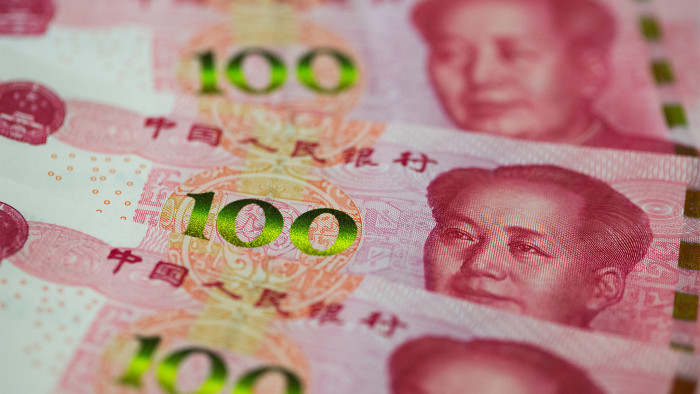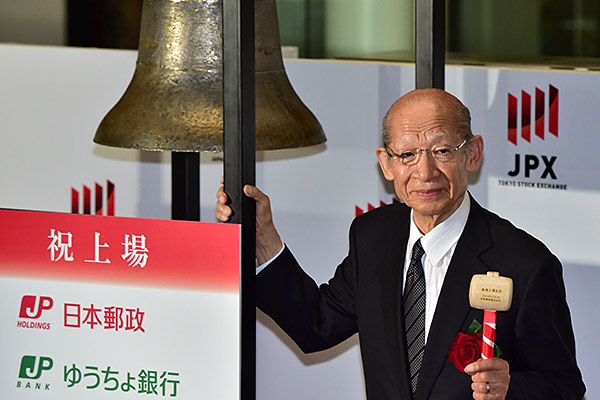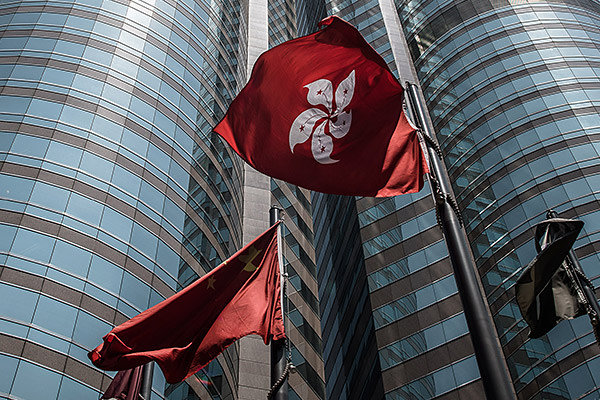Legal briefs: case studies from Asia-Pacific Innovative Lawyers

Roula Khalaf, Editor of the FT, selects her favourite stories in this weekly newsletter.
Hogan Lovells: new financing in the nick of time
When Norilsk Nickel, a Russian mining company, wanted to increase its financing options, it turned to a consortium of three big banks, led by the Industrial Commercial Bank of China.
As a large multinational with operations in China, the miner needed renminbi financing. The problem for the company was that offshore renminbi borrowing rates were becoming increasingly volatile.
Norilsk Nickel recognised that offshore renminbi was susceptible to policy interventions, but traditionally it had been difficult for foreign borrowers to secure renminbi borrowing at onshore interest rates, which made this challenging.
In theory, the rules did permit what the banks and their lawyers wanted to achieve, but the deal was subject to the approval of Chinese regulators. In practice, making the proposed Rmb5bn ($760m), five-year revolving credit facility work was difficult: such a deal had never been done before.
One of the critical roles of the lawyers at Hogan Lovells was to provide reassurance to the lenders that the structure and documents in the transaction were legally enforceable under all applicable laws, including English and Russian law.
“This was necessary to clear the internal hurdles and obtain the requisite approval from the People’s Bank of China,” says Kanyi Lui, a partner at Hogan Lovells.
The firm says this is the first time that a borrower outside China has been able to arrange onshore renminbi financing at onshore benchmark rates.
The new facility enables Norilsk Nickel to manage its funding risk. This is particularly important as the US and EU continue their sanctions against Russia. The ability of the ICBC to bring in two other major domestic banks also shows a healthy appetite for foreign lending in China.
Kirkland & Ellis: when the chips were down

In October 2015, Studio City, a major hotel and casino project in Macau, was nearing completion. Then a policy change caused disarray: China’s President Xi Jinping announced a major crackdown on corruption.
Macau’s government, to curb some of the perceived excesses of its gambling scene, moved to limit the number of gaming tables licensed for new projects, dramatically cutting Studio City’s revenue projections and leaving it facing a potential default on a $1.4bn loan.
Kirkland & Ellis, led by Neil MacDonald, along with two other firms, Latham & Watkins and Skadden Arps, which represented shareholder interests, moved quickly to set up a contingency plan.
Proving that innovative lawyering is often as much about style as it is about content, the legal team developed an open and transparent approach with the banks and key stakeholders.
Kirkland & Ellis was so successful in building up trust that the banks did not choose to instruct their own legal teams.
Nishith Desai Associates: fund management
When the Indian government asked Nishith Desai Associates to create a new $6bn infrastructure fund, the main requirement was that it be free from political influence.
NDA suggested that the government think like a private company and put some money in but allow other investors to contribute. They believed such a collective sovereign fund would be a world first.
Instead of investing directly, it will act as a fund of funds. The hope is that the downstream funds will efficiently leverage limited government resources to improve India’s underfunded infrastructure projects.
The lawyers advised that the National Investment and Infrastructure Fund should set up under existing regulation to avoid a lengthy legislative process. They also used a trust structure for the fund so repatriation of money to foreign investors would be easier.
Mori Hamada & Matsumoto and Sullivan & Cromwell: post haste

When the privatisation of Japan Post Holdings, the national postal company, was announced, a television campaign urged the Japanese public to buy shares in the largest sale of a state-owned company since 1987.
For the international law firm Mori Hamada & Matsumoto and New York-based Sullivan & Cromwell, the privatisation presented unique challenges. Japan Post Holdings has two subsidiaries, the country’s largest bank by deposits and its biggest insurer by assets. The government mandate was that a stake in both subsidiaries had to be sold off on the same day as the holding company.
To add to the complexity, Japan Post Holdings intended to use the sale of its subsidiaries to repurchase its common stock from the ministry of finance. Therefore, the subsidiaries’ value would affect the offer price of Japan Post Holdings.
The lawyers’ role became fundamental to the success of the concurrent offerings. Their innovations lay in the drafting of the investor prospectus for all three companies and the staggered pricing structure for the offerings.
The pricing of the bank and insurance company took place a few hours before the process of recording investor demand for Japan Post Holdings began. It allowed the company a narrow window to buy its shares back, before its prospectus was quickly amended to include a “pro forma” balance sheet and earnings statement.
While this was far from the preferred structure, lawyers say it could be replicated for diversified groups wanting to go public or sovereign issuers.
Skadden, Arps, Slate, Meagher & Flom: waive goodbye

With many Chinese companies now choosing to delist in the US, the relisting of 3SBio, the Chinese biopharmaceutical business, on the Hong Kong stock exchange last year could be a useful example for companies looking to reverse their take-private transactions.
Corporations that relist often do so with a merger vehicle to demonstrate inward investment and justify a higher relisting price. The lawyers advising 3SBio managed to relist the company without going down that route by applying for several novel waivers from the Hong Kong stock exchange. Chris Betts, the Skadden partner on the deal, says: “The waivers did raise eyebrows.”
The crucial waiver was in regard to Hong Kong listing rule 9.09(b), which allowed the private equity investors to swap their interest in a holding company to the listing vehicle immediately before the IPO. Without this waiver, the transaction might have been derailed.
LNT & Partners: the real thing
Coca-Cola Beverages Vietnam wanted to prevent its products being exported to other regions where they could undercut sales of locally produced Coke. LNT & Partners came up with a solution to this challenge that is replicable worldwide.
Net Le, a partner at LNT, thought the way out of the impasse was to prove that the Coca-Cola Company’s trademark would be violated through the export of Vietnamese Coke to other countries. He saw that the licence between Coca-Cola and the local bottling company constituted a lease agreement for Coke’s trademark, and registered it at the National Office of Intellectual Property. This enabled Mr Le to argue that since Coke’s trademark was protected in Vietnam, the government had a responsibility to stop illegal use of its goods, which includes their export to other countries.
Comments